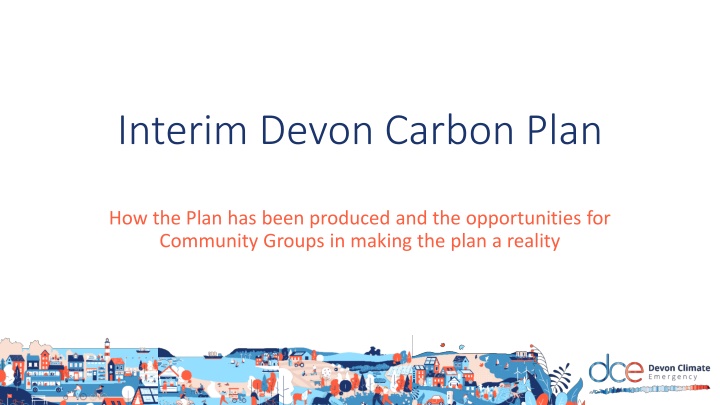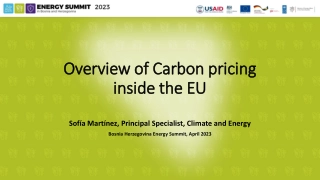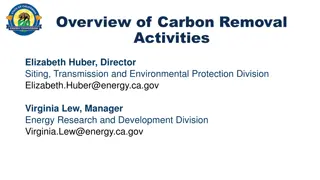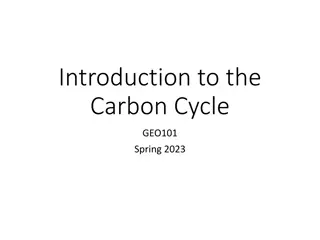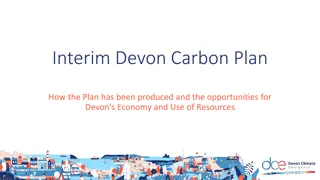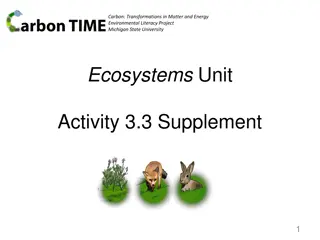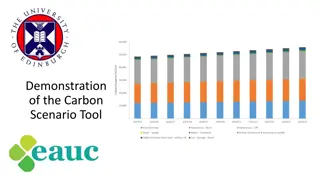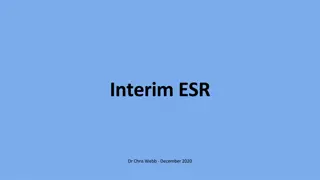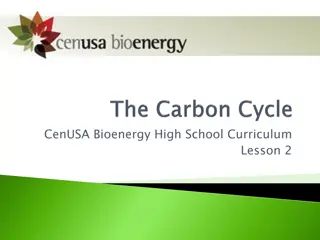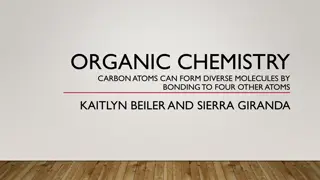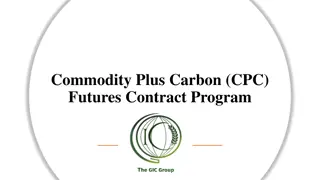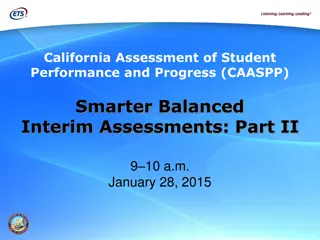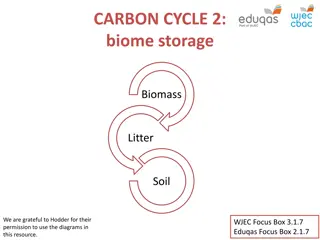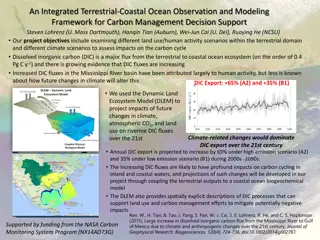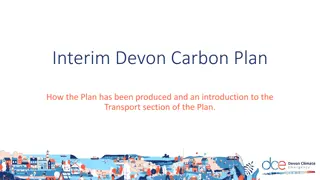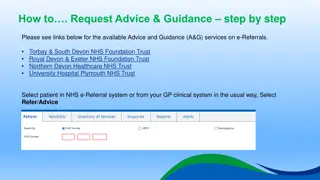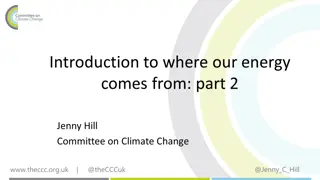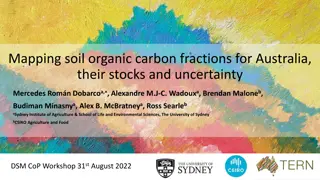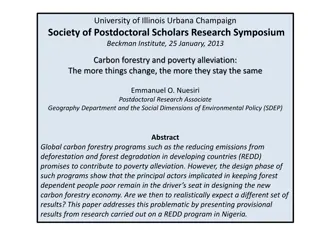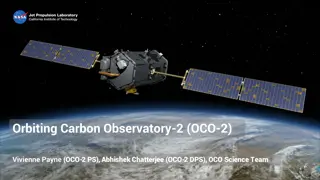Interim Devon Carbon Plan
The Interim Devon Carbon Plan outlines the process of its production and emphasizes the vital role of community groups in transforming it into reality. This comprehensive guide explores opportunities for community involvement and collaboration to ensure the successful implementation of the plan, paving the way for sustainable initiatives and collective action towards a greener future.
Download Presentation

Please find below an Image/Link to download the presentation.
The content on the website is provided AS IS for your information and personal use only. It may not be sold, licensed, or shared on other websites without obtaining consent from the author.If you encounter any issues during the download, it is possible that the publisher has removed the file from their server.
You are allowed to download the files provided on this website for personal or commercial use, subject to the condition that they are used lawfully. All files are the property of their respective owners.
The content on the website is provided AS IS for your information and personal use only. It may not be sold, licensed, or shared on other websites without obtaining consent from the author.
E N D
Presentation Transcript
Interim Devon Carbon Plan How the Plan has been produced and the opportunities for Community Groups in making the plan a reality
1. Welcome Your Host Gill Westcott Harry Bonnell Co-Chair of Transition Exeter, a Director of New Prosperity Devon and Member of the Net-Zero Task Force Speakers: Community Project Officer, Devon Communities Together and Member of the Net-Zero Task Force Fuad Al-Tawil, Emily Reed Project Manager, Devon Climate Emergency ACTion on Climate in Teignbridge, Built Environment and Energy Group Coordinator Peter Stott, Hannah Oliver Sustainable Tiverton Communications Lead, Devon Climate Emergency
Agenda 1. Welcome 2. Background to the Devon Climate Emergency 3. Introduction to the Interim Devon Carbon Plan 4. Opportunities for Community Groups 5. Governance of the Plan 6. Keynote discussion 7. Question and Answer Session 8. Next Steps
2. The Devon Climate Emergency Creating a resilient net-zero carbon Devon where people and nature thrive Objectives: Partnership: Reduce carbon emissions to net-zero by 2050 at the latest Improve the resilience of Devon s environment Prepare communities for a warmer world
2. Devon Climate Emergency Project Structure: Devon Climate Declaration
3. The Interim Devon Carbon Plan Engagement A plan for everyone one in Devon Focuses on the strategic issues and it nests with plans at other levels
3. The Interim Devon Carbon Plan Date for Net-Zero Your Opinion The Plan describes what needs to be done to reach net-zero Provides a trajectory to meet net-zero by 2050 Indicates the costs, opportunities and co-benefits of 2050 Discusses the practical challenges of achieving net-zero ahead of the national timetable e.g. 2030 and 2040 The date to achieve net-zero by is a specific consultation question
3. The Interim Devon Carbon Plan Funding: Geography: The Plan makes clear that net-zero cannot be achieved within existing resources and policy. The current funding status of each action is described. Most need new resources. Significant opportunities for individuals to redirect purchasing power e.g. shifts in food purchasing patterns. Devon s rural nature is a challenge and an opportunity. Some net-zero actions and behaviours will be easier in town and cities. Where actions apply to a specific type of area, this is described.
3. The Interim Devon Carbon Plan Co-Benefits of Net-Zero: Create a fairer, healthier, more resilient and more prosperous society Health and Wellbeing Prosperity Improve energy security Environment Reverse the decline of biodiversity Reduce flood risk Improve water and air quality Provide more accessible greenspace Reduce fuel poverty Increase local economic prosperity More active lifestyles Make diets healthier Create new jobs and skills Improve public health and reduce pressures on the NHS Enhance opportunities for work and study
4. Opportunities for Community Groups Raising Awareness Food, Land and Sea Built Environment Support your local community to understand how their behaviour at home affects the environment e.g. what goes down the sink and carbon stores in estuaries Support your community to reconnect with the origin and seasonality of food through "grow, cook, eat" programmes including promoting a balanced diet, in line with the government s Eatwell Guide Run awareness-raising campaigns and open-home events to sell the co- benefits of living in warm, net-zero ready homes
4. Opportunities for Community Groups Raising Awareness Cross Cutting Themes: Develop a local collective net-zero vision with your community, to imagine a decarbonised society in detail
4. Opportunities for Community Groups Helping Change to Happen Economy and Resources Empower your community to have more sustainable consumption habits, to prevent waste (particularly food) and shift to a culture of reduction, reuse and recycling e.g. establish a share shed or community fridge Support your community through the transition to net-zero: Establish mutual support groups around a particular low-carbon transformation e.g. housing - Transition Streets Offer skill shares
4. Opportunities for Community Groups Helping Change to Happen Built Environment Draw on and raise awareness of your local community energy company which may offer energy advice services and signpost skilled installers and market offers (Find your local group www.devoncommunityenergy.org.uk/energy -advice/ )
4. Opportunities for Community Groups Community Wealth Building Energy Supply: Economy and Resources Invest in existing community-owned renewable energy schemes or set up new schemes Consider using crowd-funding to allow your community to invest in shared local infrastructure, such as a shared electric car charging points Support start-ups or growing businesses with the potential to contribute to delivering a net-zero Devon e.g. hold a Local Entrepreneur Forum, like Local Spark Torbay
4. Opportunities for Community Groups Community Wealth Building Food, Land and Sea: Transport: Develop demand and supply chains for local, healthy food e.g. establish community owned shared food processing facilities Reduce the need for your community to travel by providing and supporting community assets which the market may have found unviable , such as a community shop Support for the transition to active travel, e.g. by offering cycle training, bike maintenance, bike trials and rental schemes Establish a community run bus service e.g. Bob the Bus
4. Opportunities for Community Groups Helping Plan for the Future Develop Local Plans and Neighbourhood Plans that contribute to radical reductions in greenhouse gas emissions, as a primary planning objective
5. Governance and Monitoring Governance Proposal
5. Governance and Monitoring Monitoring A set of performance indicators is proposed at Section 12 of the Plan, mainly drawing on nationally-provided data on an annual basis. Greenhouse gas data is published nationally two years behind the emissions period. I.e. latest data is for 2018.
7. Next Steps View the plan: devonclimateemergency.org.uk/interimcarbonplan Complete the consultation online Share the consultation - tell a friend, family or colleague Attend or watch some of the thematic webinars
devonclimateemergency.org.uk/interim-devon-carbon-plan-webinar-seriesdevonclimateemergency.org.uk/interim-devon-carbon-plan-webinar-series
